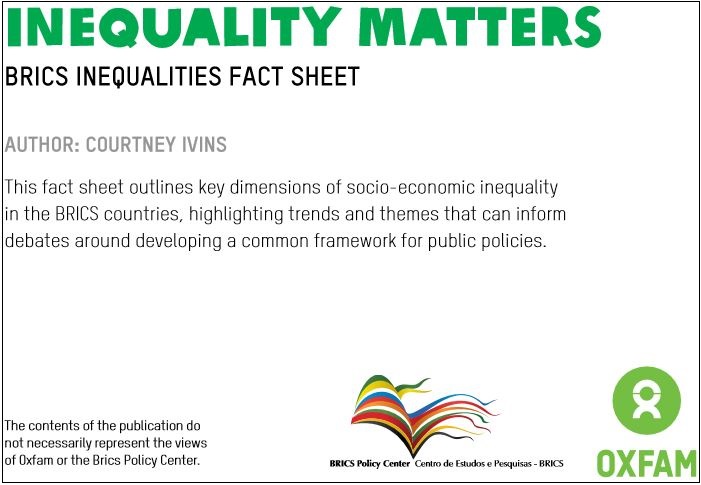| BRICS FROM BELOW |  |
|
What is BRICS? Numsa Fact Sheet 1 
BRICS Inequalities Fact Sheet 
Bond BRICS critique for Amandla Patrick Bond Amandla  READ PDF BRICS in Africa anti-imperialist, sub-imperialist or in between? Edited by Patrick Bond Professor of political economy at Wits School of Governance, honorary professor at the UKZN Centre for Civil Society Introducing Brics from above, and brics-from-below: A Brics reader for the Durban Summit In Durban, South Africa, five heads of state meet on March 26-27 2013 at the International Convention Centre, to assure the rest of Africa that their countries’ corporations are better investors in infrastructure, mining, oil and agriculture than the traditional European and US multinationals. The Brazil-Russia-India-China-SA (Brics) summit also makes space for 16 heads of state from Africa, including notorious tyrants. A new $50 billion ‘Brics Bank’ will probably be launched. There will be more talk about monetary alternatives to the US dollar. READ PDF Civil Society from the BRICS: Emerging Roles in the New International Development Landscape Adele Poskitt, Alex Shankland and Katia Taela There is a burgeoning literature on the (re)emergence of the BRICS countries – Brazil, Russia, India, China and South Africa – as significant actors in international development. To date, however, most attention has focused on the government-to-government relations established through state-led South–South Development Cooperation (SSDC) and the BRICS’ engagements in multilateral processes. Much has also been written about the growing presence of businesses from the BRICS (especially China) in poorer countries, particularly in Africa, and the somewhat tendentious and superficial slant that initially characterised much of this work is now starting to give way to a more nuanced analysis of the multiple roles played by such businesses in different places and sectors (Brautigam 2009; Mohan 2013; Navas-Alemán 2015). By comparison with this growing literature on governments and businesses, remarkably little attention has been paid to the roles played by civil society actors from the BRICS countries by researchers from outside those countries themselves.1 In this report we will argue that this has led to a neglect of both their existing and their potential contributions to the ongoing transformation of the field of international development, amid the broad geopolitical shifts symbolised by the rise of the BRICS. READ PDF |
 Links Search |
||||||
CONTACTS AND OTHER GENERAL INFORMATION |
|||||||